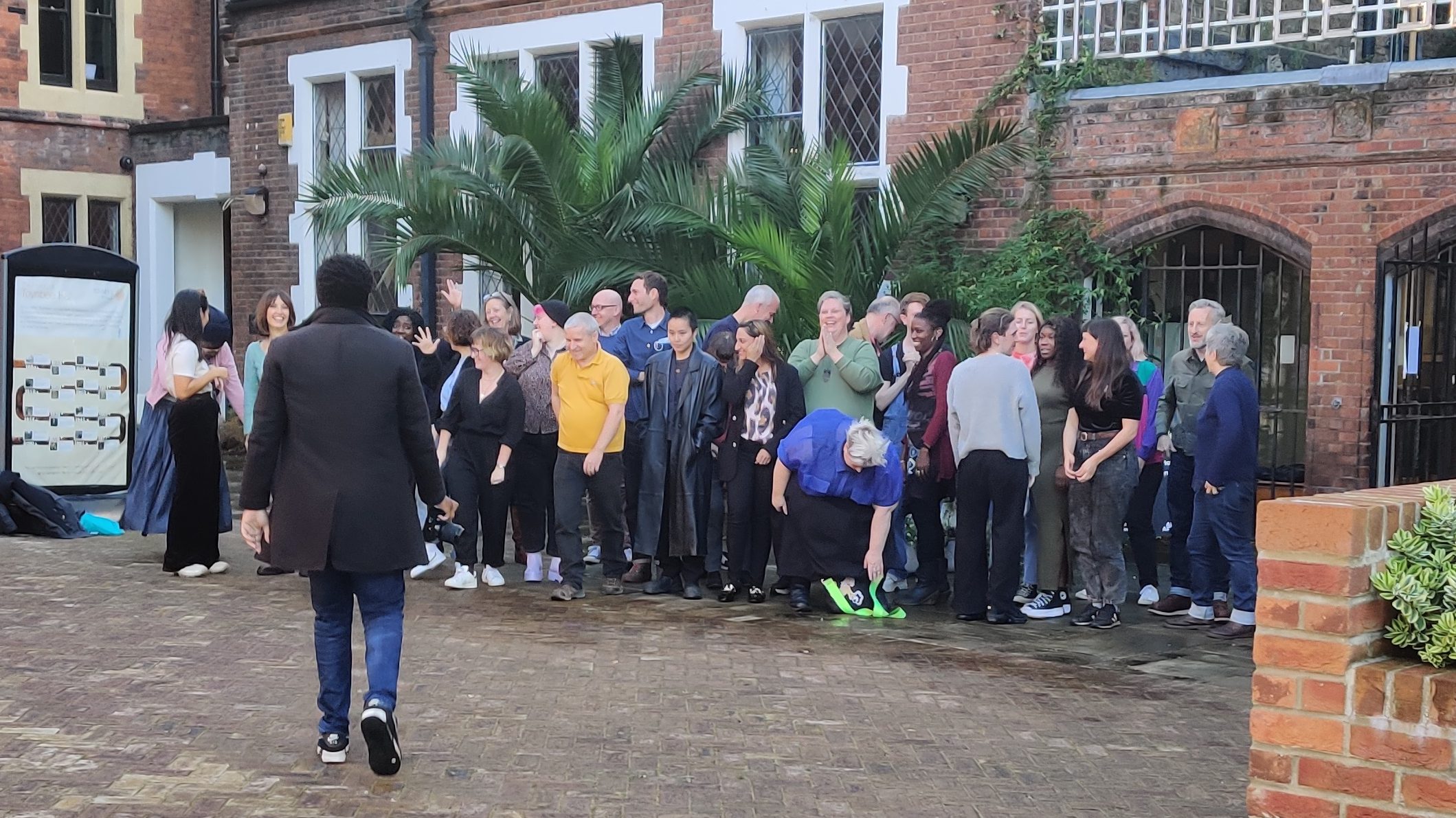What’s in a name? Moving from Artist Advisories to Creative Support Sessions
Michael Norton from our Artist Support team reflects on the changes we’ve made in how we work with artists

For over 20 years, Artsadmin has had its doors open to any artist who wants some help. Whether it was funding applications, producing, marketing, access or breaking up a collaboration, the Artist Development team were on call to advise and guide artists through some of the toughest (and loneliest) issues.
I was hired at Artsadmin with a primary role of running these advisory sessions. When I started, I ran pretty much on instinct alone. And I noticed feeling rushed to get all the advice and information into a one-hour session. In that rushing, I often dominated the conversation. The premise of the conversation rested on me having information, and knowing what that person needed without really listening. I was left exhausted and not certain if I’d helped at all.
A little over a year ago, we made the decision to focus less on development and more on support. As a part of that process, my then colleague Reena Kalsi and I started a review of everything in the legacy of Artist Development, with a particular focus on Artist Advisories. Though it was one of our most popular programmes, there was a pattern we were noticing: the artists who came to us didn’t seem to represent the breadth of experience, identity and background that we saw in the performances, exhibitions, galleries, screenings, workshops and conferences in the arts in the UK. So we got really curious and started digging.
What we came up with was fascinating: we found that asking for help was an enormous barrier, and that asking for advice was often experienced as admitting you were wrong or didn’t know something. For many very good reasons, there are artists for whom saying “I don’t know or I got it wrong” – particularly to an arts organisation, particularly to a person from a different background, and particularly when that person is in some position of power – isn’t really an option.
So we started searching for new ways of working, and pulling in tools that didn’t so much say “this is where you need to go” but rather “let’s meet you right where you are”. We decided we no longer gave “advice” (which hints at the idea that we as an organisation hold some knowledge that those who come to us can’t possess) and instead focused on “support”. We want to meet you right where you are. There are a few ways we do that, but the first (and most important) tool of support is listening. Like, really really listening. If nothing else, we want these support sessions to be a place where you feel gotten, understood, heard.
We found in our research that over 70% of the artists who come to us almost never or never speak to arts organisations about their career. The stakes seem too high. The road seems uncertain, is risky and is generally fraught with disappointment. We get that. It is. And we want to be here to support.
So we’ve designed a model that we hope creates a sense of belonging, okay-ness, settling, before we get to any of the “what do I do?”. We call them Creative Support Sessions, built on the principle that artists are usually isolated, uncertain and scared that they’re getting it wrong because they aren’t in a feedback-rich environment.
Starting in 2022, we are also offering access to our wider producing team. You can speak with everyone from our Artistic Director to our Artist Producers, from Artist Support to Engagement. We want to focus on your vision, where there’s resistance, what’s not working right now, and what are some next steps to getting you unstuck. We’re here to listen and support you in a way that meets you right where you are. We look forward to seeing you.
